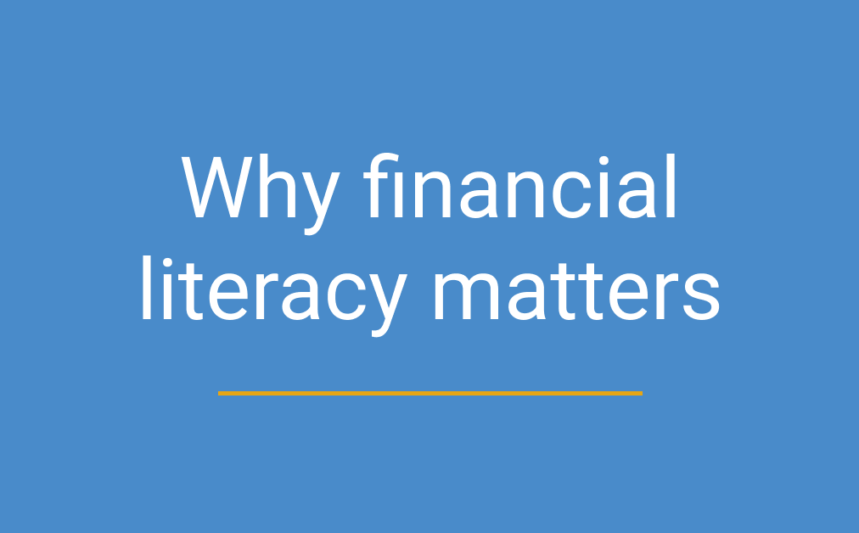Did you know April is Financial Literacy Month? This vital effort to raise awareness about the importance of financial literacy began as Youth Financial Literacy Day. In 2000, the Jump$tart Coalition expanded the day to encompass the entire month of April. During Financial Literacy Month, organizations across the country promote the importance of financial education in improving financial wellbeing all year long. But what makes effective financial education so important?
Financial literacy helps close wealth gaps
A 2020 study by Pew Research found that over the past 50 years, the highest-earning 20% of U.S. households have steadily brought in a larger share of the country’s total income. This is a major wealth gap between America’s richest and poorest families. Besides this widening wealth gap, racial and gender pay gaps also contribute to an uneven playing field. For example, did you know:
- According to Payscale, women in 2021 earn 82 cents for every dollar earned by a man.
- Black Americans earn 73.4 cents on the dollar to white Americans, as reported by the New York Times.
- The Economic Policy Institute found Black women earn only 64 cents for every dollar a white man earns.
Countless studies have looked at similar pay gaps between other races and genders. Similarly, researchers have found that teaching personal finance, especially from a young age, can help shrink both wealth and pay gaps. The problem is, financial literacy often isn’t being taught to those most in need.
A 2020 article from the Forbes Finance Council points out that financial literacy is one piece of the puzzle that can help people “turn wages into long-term wealth…fueling financial success that transforms generations.” That means effective financial education is crucial in improving equity and inclusion.
Effective Financial education improves equity & inclusion
More and more, people are recognizing the importance of access in education. From using plain, clear language in educational resources to modifying materials based on unique learning needs, this earmark of effective education is crucial for equity & inclusion.
Access applies to financial education as well. This includes translating financial wellness resources and making assets available in as many forms as possible, including online resources such as our FA$Ttrack portal. It also includes making financial education equitably available to families, individuals, and younger people of all races, genders, and income levels.
Of course, effective financial education that improves equity and inclusion will not immediately resolve wealth gaps. But financial literacy is one crucial piece of the solution that could even prevent social issues later in life as well.
Early financial education may prevent social issues
Did you know 65% of Americans believe schools should provide financial education? But according to Charles Schwab’s 2020 Financial Literacy Survey, only 21 states currently require high school students to complete a personal finance course. The same study found that 89% of Americans believe a lack of financial literacy leads to social issues such as poverty, lack of job opportunities, unemployment, and wealth inequality.
It is widely recognized that early financial education is essential in life. In fact…
- College savings accounts increase the likelihood of children attending and graduating college. Even as little as $1-499 in savings made it 3x as likely children would attend college and 4x as likely they would graduate.
- Financial literacy has been shown to help reduce or prevent student debt problems and improve financial decision-making that lasts a lifetime.
- Early financial education and responsibility can open career doors and improve workforce readiness.
Imagine if people learned from an early age to be responsible with their finances, invest and grow their wealth, and be prepared for work and intelligent financial decision-making. Imagine if families could build emergency savings, create college funds for their kids, and budget their finances without living paycheck to paycheck or worrying about missing bills.
Here at Liberty Bay, we believe in the power of financial education to promote equity & inclusion and close the wealth gap. Learning to manage your money is crucial in making big financial decisions, budgeting for living expenses, and improving your financial health throughout your whole life.
Your experts at Liberty Bay are dedicating to empowering you to understand your unique financial position and take control of your financial future. Want to get some advice about achieving your financial goals? We’re here to help – get in touch with us anytime!


